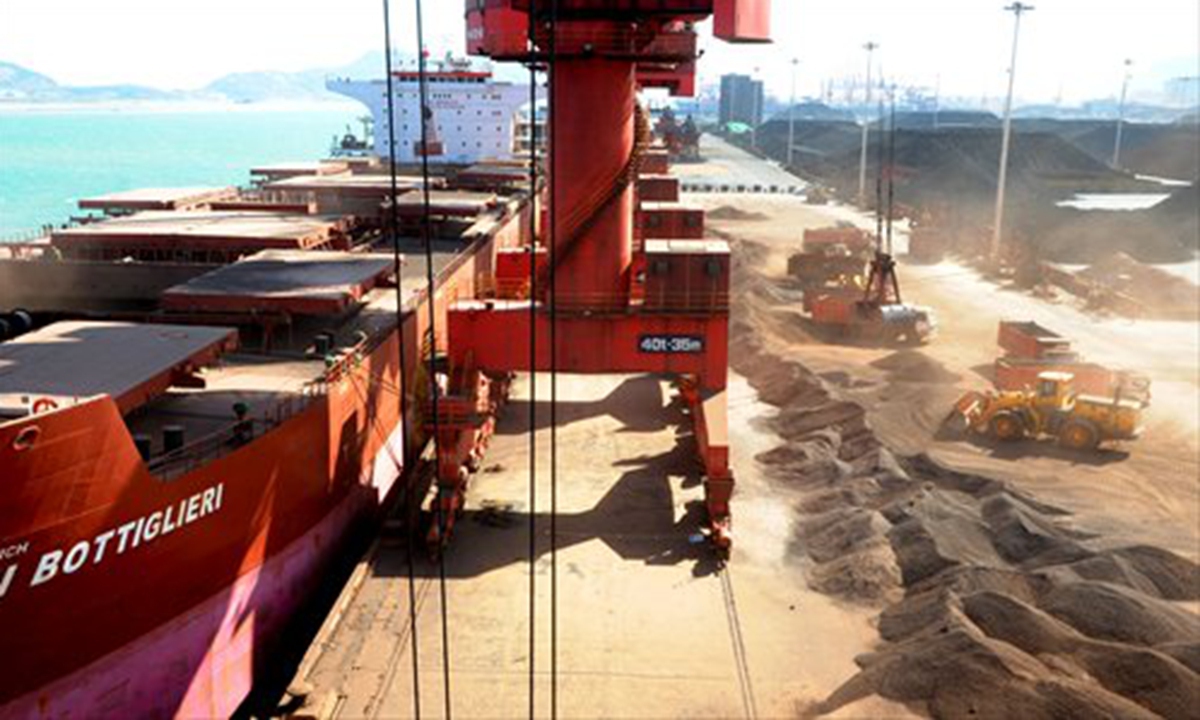
A ship unloads rare-earth metals at the port of Lianyungang, East China's Jiangsu Province. Photo: IC
China's exports of gallium and germanium soared in July ahead of export controls that took effect on August 1, data from the General Administration of Customs (GAC) showed.
China exported 7.58 tons of gallium products in July, a new high in 2023 and up 372.6 percent from June. The export value was up by 335.7 percent month-on-month to $2.18 million, showed GAC data released on Sunday.
Exports of germanium products totaled 1,506 tons, up 25.3 percent from June. The value of these exports set a record for this year, rising 76.8 percent month-on-month to $24.4 million.
Items related to these two metals can be used for both military and civilian purposes. Since the imposition of export controls, market prices have soared. The export controls have caused panic among some foreign companies, which began to stockpile, Zhang Xiaorong, director of the Beijing-based Cutting-Edge Technology Research Institute, told the Global Times on Monday.
On July 3, the Ministry of Commerce and the GAC jointly announced a decision to
impose export controls on gallium and germanium related items, effective August 1.
Gallium and germanium are two key rare metals that are widely used in the semiconductor, new energy and other fields.
The export controls mean that China will conduct an extra review. Exports that are in compliance with the relevant regulations will still be allowed. Therefore, global supply chains would not be disrupted, Hu Qimu, a deputy secretary general of the digital real economies integration Forum 50, told the Global Times on Monday.
Analysts stressed that the export controls are needed to safeguard China's national security and interests. Export controls on these substances are an international customary practice, and major countries have also imposed controls.
Most developed countries implement export controls on strategic mineral resources. Both the US and the EU have put gallium and germanium on the list of key minerals for "special attention," and they included the two minerals on the export control list of the Wassenaar Arrangement, a multilateral mechanism for export controls.
According to the US Geological Survey, China is the largest producer of germanium, having supplied approximately 68.5 percent of the germanium in the world over the past decade, while holding 41 percent of global germanium resources.
As of 2021, China accounted for more than 90 percent of global gallium production, while it holds about 68 percent of global reserves.
Given these circumstances, the resort of export controls to properly restrict exports and reduce the loss of strategic resources is in line with international practice and the basis is very clear, analysts said.




